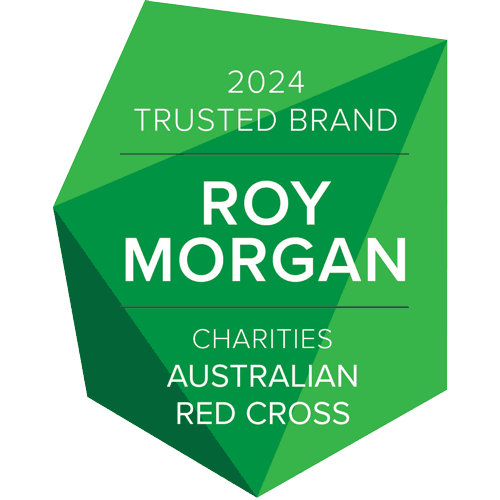IHL Best Practice
What is international humanitarian law?
International humanitarian law (IHL), also known as the laws of war, is the body of laws that aim to limit suffering in times of armed conflict - both international and non-international armed conflict. IHL imposes obligations on parties to armed conflict in order to protect those who are not, or who are no longer participating in hostilities and to limit the means and methods of warfare.
Australian Red Cross and IHL Best Practice
As an organisation that regularly deploys staff to conflict zones, and which has a mandate to promote awareness of IHL, Red Cross is taking action to embed IHL into our policies, procedures and practice . We believe that if our people understand IHL, this will lead to:
- Capacity: Enhanced capacity to leverage and promote IHL, so as to achieve better humanitarian outcomes and to contribute to global discussions on IHL compliance;
- Protection: Better protection of our people when they are in conflict zones, as well as local communities in these areas;
- Risk mitigation: Increased ability to identify and mitigate operational, reputation and liability risks associated with operating in conflict zones or arising from third party partnerships.
IHL Best Practice at Australian Red Cross
Australian Red Cross has adopted and is implementing a set of IHL commitments, which we have called our “IHL Action Plan.” Our commitments are framed by seven Principles for IHL Best Practice. The first Principle is to publicly share our commitment to respect and promote respect for IHL. We do so in the following statement.
Australian Red Cross Statement of Commitment on International Humanitarian Law
Australian Red Cross is part of the world’s largest humanitarian movement, dedicated to preventing and alleviating human suffering, especially during armed conflict.
The Statutes of the International Red Cross and Red Crescent Movement set forth our clear mandate to disseminate and ensure respect for the laws of war – also known as International Humanitarian Law (IHL) – and to assist our governments in doing the same.
We believe that any organisation operating in a conflict zone should understand its responsibilities and protections under the laws of war. This serves not only to mitigate operational, reputational and legal risks – it protects life and human dignity.
Thus we commit to the following Principles for IHL Best Practice
A public commitment not only ensures that we will hold ourselves to account, but also allows us to communicate to third parties (e.g. partners, suppliers and donors) that we are aware of the legal framework applicable in conflict zones and are taking steps to ensure that we comply with this framework. It helps create a culture of respect within Australia for these laws.
Internal policies that explicitly incorporate IHL will help us assess, plan for and manage the operational, legal and reputational risks associated with operating in a conflict-affected environment. This commitment also gives our stakeholders, other partners and the public the confidence that we take our responsibilities seriously.
Ensuring that all personnel understand their rights and responsibilities under IHL– in times of peace, and in times of war – means that Red Cross People can leverage IHL to achieve better humanitarian outcomes. In conflict settings, Red Cross People can use their knowledge of IHL to minimise risks for themselves and others.
Managing the security risks associated with non-compliance with IHL (e.g. direct attacks against staff and/or infrastructure) is essential to the security of our staff and operational efficiency.
We take positive action to ensure that our partners and other third parties (e.g. contractors, suppliers, donors, etc.) respect international humanitarian law, we help organisations achieve better humanitarian outcomes, and we reduce our risk of being associated with third parties that do not respect international humanitarian law. This helps create an overall culture of respect within Australia for these laws.
Transparent reporting ensures that we are accountable to our people, as well as donors and beneficiaries.
We ensure that all personnel have access to a complaints and grievance process, and that managers and senior leaders are trained to deal with any allegations of violations of IHL, including reporting, where appropriate, to relevant authorities. This strengthens respect for international humanitarian law. Implementing internal analyses of security incidents will also allow us to improve future security planning and management.
These Principles guide our IHL Action Plan, which sets out key changes that we will make to our policy framework; the training and development of our people; our operations; and our internal and external reporting framework.
We will work with Australian organisations that operate in a conflict zones to develop a shared understanding of IHL Best Practice, and to help them adopt their own commitments to achieve IHL Best Practice. This will assist Australian organisations to comply with the legal framework within which they operate, protect Australians working in conflict zones, and protect people and communities affected by conflict.
To start a conversation on IHL Best Practice and its relevance to your organisation, please contact Fauve Kurnadi, Adviser – Private and Academic Sectors.
Charity donations of $2 or more to Australian Red Cross may be tax deductible in Australia. Site protected by Google Invisible reCAPTCHA. © Australian Red Cross 2025. ABN 50 169 561 394
